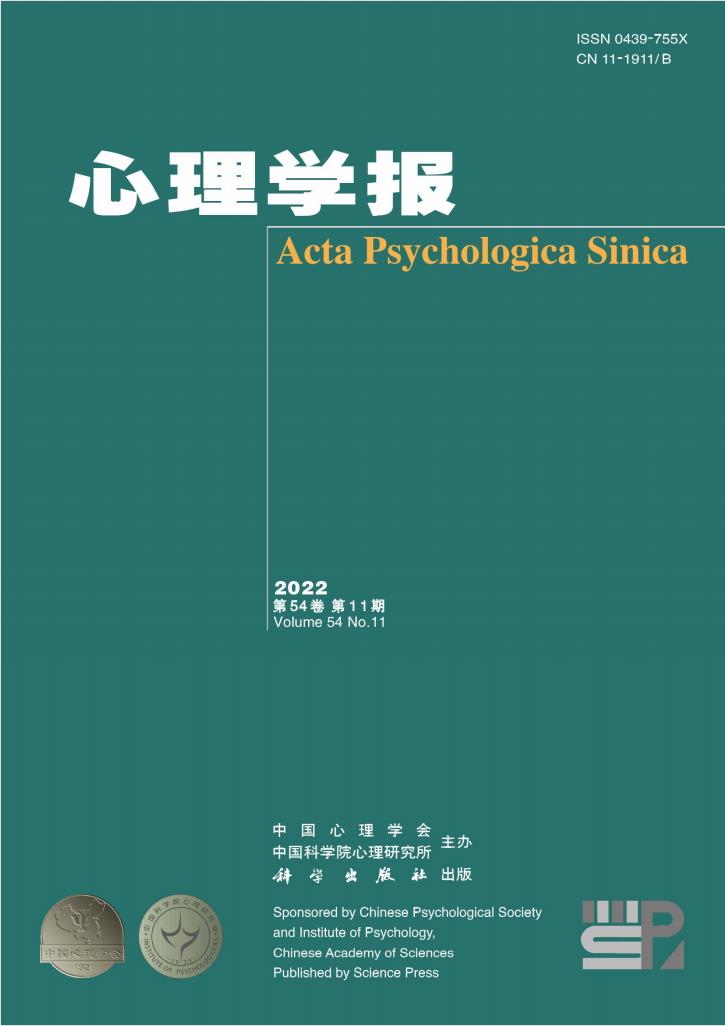Influence of an individual’s own gains and losses on the evaluation of friends’ gambling results: Evidence from ERPs
IF 1.3
4区 心理学
Q3 PSYCHOLOGY, MULTIDISCIPLINARY
引用次数: 3
Abstract
on the evaluation of friends’ gains and losses would differ under different modes of self-construction. The results indicated that in the interdependent self-construction initiation group, the electrophysiological response mode that results from watching friends’ gambling was consistent with the result obtained in Experiment 1. However, after initiation of the independent self-construction of the subjects, the evaluation mode of the gambling results of a friend differed from that of the interdependent self-construction initiation group. In terms of the FRN index, regardless of one’s own gains and losses, the differences in FRN for friends’ gains and losses were no longer significant. In terms of the P300 index, the P300 discrepancy resulting from watching the gains and losses of a friend after suffering own losses was not significant. However, after having gained benefits, a higher P300 amplitude was induced by watching friends losing money in gambling than when watching them gain money. In summary, this study shows that: (1) the evaluation model for one’s friends’ gains and losses differs depending on the own experienced gains and losses. Under favorable conditions, an individual is more inclined to show indifference to his friends’ gains and losses, which may be because the individual employs stronger egocentric tendency in such a case. (2) The independent self-construction initiation group shows more indifference and competition when observing the gains and losses of a friend than in case of the interdependent self-construction group.个人得失对朋友赌博结果评价的影响:来自ERP的证据
在不同的自我建构模式下,对朋友得失的评价会有所不同。结果表明,在相互依存的自我建构启动组中,观看朋友赌博产生的电生理反应模式与实验1的结果一致。然而,在受试者开始独立的自我建构后,朋友对赌博结果的评价模式与相互依存的自我建构启动组不同。在FRN指数方面,无论自己的得失,朋友得失的FRN差异不再显著。在P300指数方面,观察朋友在遭受自身损失后的得失所产生的P300差异并不显著。然而,在获得利益后,观看朋友在赌博中输钱会比观看他们赚钱时诱发更高的P300振幅。总之,本研究表明:(1)对朋友得失的评价模型因自己经历的得失而不同。在有利的条件下,个人更倾向于对朋友的得失漠不关心,这可能是因为在这种情况下,个人表现出更强的自我中心倾向。(2) 独立的自我构建启动组在观察朋友的得失时比相互依赖的自我构建组表现出更多的冷漠和竞争。
本文章由计算机程序翻译,如有差异,请以英文原文为准。
求助全文
约1分钟内获得全文
求助全文
来源期刊

心理学报
Psychology-Psychology (all)
CiteScore
1.70
自引率
13.30%
发文量
1612
期刊介绍:
Acta Psychologica Sinica (ISSN 0439-755X) is a scholarly journal sponsored by the Chinese Psychological Society and the Institute of Psychology, Chinese Academy of Sciences, and published monthly by the Science Press.
Acta Psychologica Sinica has been included in many important national and international indexing systems such as SCOPUS (Elsevier), ESCI (Web of Science), PsycINFO (APA), CSCD. It is the flagship journal of the Chinese Psychological Society that publishes peer-reviewed original empirical studies and theoretical articles spanning the entire spectrum of scientific psychology.
Acta Psychologica Sinica publishes high-quality research that investigates the fundamental mechanisms of mind and behavior and aims to deliver scientific knowledge to enhance our understanding of culture and society. It welcomes submissions of manuscripts reporting research that is up-to-date, scientifically excellent, and of broad interest and significance.
 求助内容:
求助内容: 应助结果提醒方式:
应助结果提醒方式:


